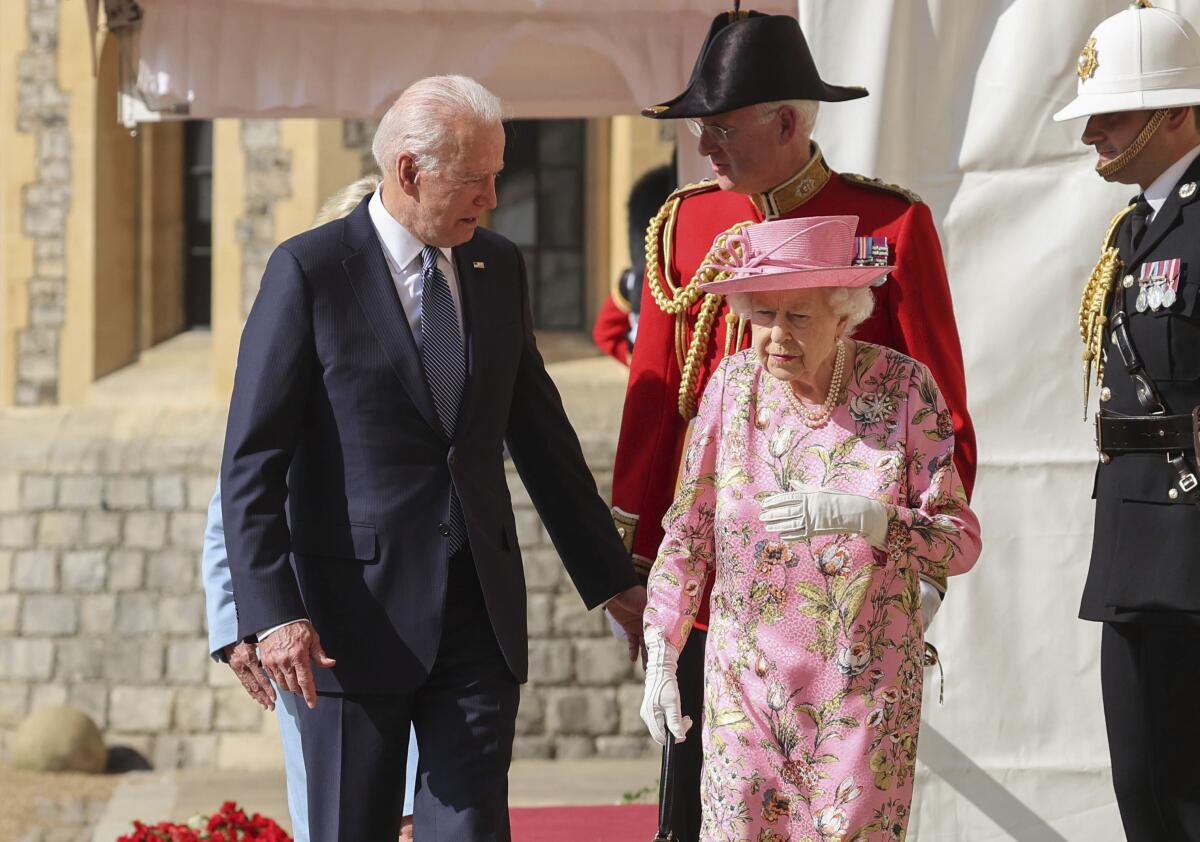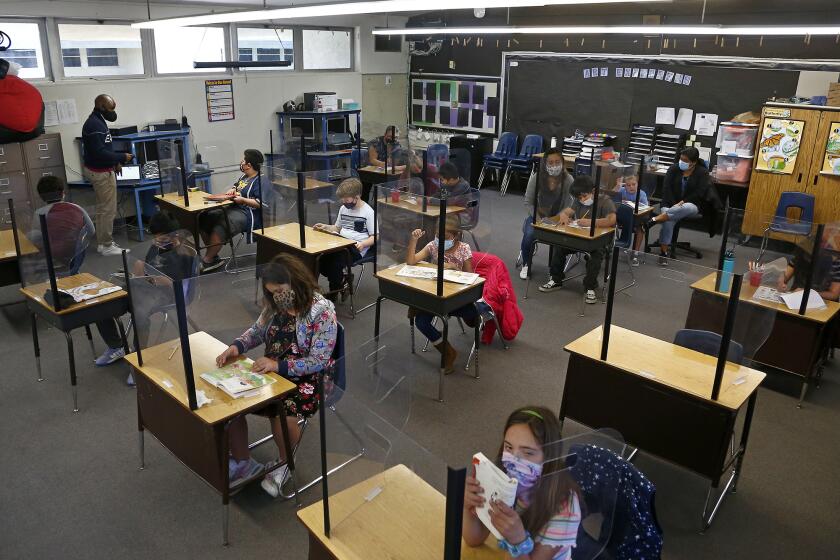Apodaca: Why are Americans fascinated by the royal family?

- Share via
I was shopping recently at one of my regular haunts in Newport Beach. When I reached checkout I expected the usual friendly banter from the employee behind the register: “How’s your day going so far?” Or, “Oh, these are so good!”
But this time the clerk followed with, “It’s so sad about the Queen.”
Seemingly everywhere these days people are discussing the passing of Queen Elizabeth. At parties and family dinners, on television talk shows and during podcasts, in news articles and commentaries, everyone has something to say about the late British monarch.
And now, apparently, so do I.
More precisely, I have a question: Why are so many Americans fascinated with the royal family?
After all, they are not our royal family. A long time ago we fought a war to sever ourselves from the British crown. The divorce eventually became amicable, even affectionate — there’s that whole “special relationship” thing between us and the Brits — but the point remains. We purposefully rejected a system based on a sovereign ruler.
I raise this topic with full acknowledgement that I, too, could be considered an Anglophile. I adore Jane Austen, “Midsomer Murders” and afternoon tea, and I’m enamored with an idealized image of life in a charming village in the English countryside.
Nevertheless, I find the preoccupation with the royal family curious. So I’ve been posing my question to people I’ve encountered over the past several days, and I’ve received some thoughtful responses.
Educators are hampered by administrative and government measures that lessen their freedom and creativity in the classroom, writes Daily Pilot columnist Patrice Apodaca.
Many spoke of their admiration for the late queen’s poise. They referred to Britain’s storied history and to her longevity. As head of state for seven decades — hers was the longest reign of any British ruler — she was simply always there, a point of stability and stick-to-itiveness in an ever-changing world.
Granted, the monarchy no longer has any real political power, and it serves mainly as a colossal PR machine that trades on nostalgia for a once-mighty empire. Yet through the tumult of modern life, her highness could be counted on to wave the same wave, grace the masses with that aloof smile, steadfastly maintain a regal bearing, and inspire so-called commoners to keep their chins up and march forward. That is power, of a sort.
No, she was not our queen. Even so, many Americans seemed to take comfort in her dignified air and adherence to tradition, however archaic or abstruse those customs might be. Her bland, take-no-sides-ism was viewed as a salve for our chaotic, polarized society.
But there’s more to it than that, and I think we all know it.
The answer to why a store clerk in Orange County, Calif., mourns the death of a distant queen also lies in the fact that the British royal family presents a near-perfect mashup of the cultural ingredients we love best: celebrity, extreme wealth and status, and Disney princess fantasy.
No matter that the late Queen’s clan is often a hot mess of epic proportions. That only makes us royalty-deprived Yanks more obsessed.
They’re the “Keeping Up With the Windsors” reality show, in which participants live in castles and wear fabulous clothes and ridiculous hats, are constantly the target of gossip and rumors, instigate scandals, try to gloss over those scandals with patrician authority, and feign gratitude and humility while accepting honors and riches they didn’t earn.
Egged on by an overzealous British press and social media trolls, we scrutinize every sideways glance, hair flip, hand gesture and wardrobe choice. We choose our favorites to root for and pretend we know them. Sometimes, secretly, we want to be one of them.
And many of us just can’t look away when the whole exalted apparatus skids off track, as it often does.
We don’t even need to go back in time to the days of colonial oppression and exploitation or to the sad story of Princess Diana. There’s plenty of ignominy in recent years, including Prince Andrew’s friendship with convicted sex trafficker Jeffrey Epstein, and the accusation by one of Epstein’s victims that now-King Charles’ younger brother sexually assaulted her. Andrew denies the claim but agreed to a financial settlement with the young woman.
You might think we’d reserve our outrage for that nasty episode. Instead most of the attention, far as I can tell, has been focused on the controversy surrounding Prince Harry and his American wife, Meghan Markle, the former actor who stokes criticism merely for being herself — biracial and not to the manner born.
Despite such ugliness — or maybe because of it — I don’t think our fixation on British royalty will subside anytime soon. The suggestions that King Charles’ dour personality could lessen public interest in royal goings-on are wildly premature and probably wrong.
So here’s what I suggest:
If we’re going to maintain our hobby of Windsor-watching, we should also be aware of, and acknowledge, that racism, misogyny and the extreme snobbery at which the British aristocracy excel are just as much a part of the royal package as palaces and primogeniture.
And we should be more clear-eyed about why we’re so spellbound by a faded system that, underneath the jewel-encrusted exterior, has also represented a dark side of humanity.
Perhaps we could do with a little less fractured fairy tale and a bit more reality — emphasis on the real.
All the latest on Orange County from Orange County.
Get our free TimesOC newsletter.
You may occasionally receive promotional content from the Daily Pilot.





